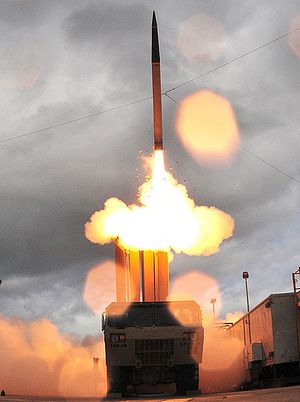There have been numerous of discussions on the possible deployment of the THAAD system in South Korea. China’s attitude has been increasingly clear and firm – Don’t do it, for everybody’s sake.
Naturally, from China’s perspective, it’s uncomfortable to have an advanced missile defense system deployed in the territory of one of its closest neighbors. This system, once truly deployed, will definitely bring about both real (military) and symbolic (psychological) concerns to China.
But beyond that, THAAD deployment, which has yet to be finally confirmed, could pose two less obvious but serious diplomatic challenges for China.
First, THAAD could conceivably check both China and South Korea in the East Asian power game. The hidden message from the United States could be that the Beijing-Seoul honeymoon will always have to give way to traditional security ties between Seoul and Washington. That means Seoul’s diplomacy with Beijing will be constrained every time U.S. politicians decide to invoke South Korean security concerns regarding the North Korean nuclear and missile threat. Merely the discussions between Seoul and Washington regarding THAAD — forget about the actual deployment — will be a very uncomfortable wedge driven into China’s painstakingly-built good neighbors policy with South Korea. No wonder some Chinese believe that the United States is actually alienating both China and South Korea with talk of THAAD deployment. China may be confident in South Korea’s economic reliance, but an “unfriendly” decision to deploy THAAD will be regarded in China not only as a humiliation, but as a stab in the back.
Second, THAAD deployment in South Korea could also further alienate and estrange China and North Korea. China may try to remain evasive when asked about the Treaty of Friendship, Cooperation and Mutual Assistance with North Korea, but it can’t escape the facts. China indeed has a very strong, almost inescapable responsibility for (and obligation to defend) North Korea’s survival and security, however vocally North Korea advocates self-reliance. THAAD could drive another wedge between Pyongyang and Beijing, as Pyongyang has vowed to respond by further developing its nuclear capabilities.
Two possibilities are even more worrying to China. First, North Korea may complain about and even blame China for its inability to prevent THAAD deployment. Second, North Korea may use more hazardous or proactive means as counter-measures against the threat from the United States and South Korea, as it has already threatened. Both of these two possibilities are giving China a headache.
Given the negative diplomatic consequences for China, Beijing may suspect that the United States is trying to kill two birds with one stone by advocating for THAAD. Even if the deployment seems inevitable, expect China to counter it by making the process lengthy and the price high, both economically and politically.
































